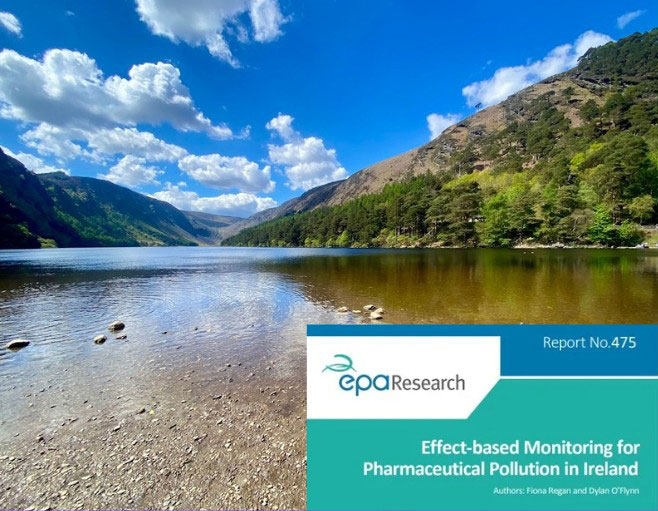The Environmental Protection Agency (EPA) and DCU Water Institute has published an important new report “Effect-Based Monitoring for Pharmaceutical Pollution in Ireland” (Research Report 475), shedding light on the growing issue of pharmaceutical contamination in Ireland’s water bodies. The research from DCU Water emphasizes the importance of innovative monitoring tools to assess water quality more effectively and safeguard both environmental and public health.
The Challenge of Pharmaceutical Pollution
Pharmaceutical compounds are increasingly being detected in water sources in Ireland and worldwide. These contaminants originate from a variety of sources, including wastewater treatment plant discharges, hospital waste, and household disposal of medications. Traditional monitoring methods focus primarily on chemical analysis, which can detect the presence of individual substances but may fail to capture their cumulative biological effects on aquatic ecosystems.
Introducing Effect-Based Monitoring
This project explores the potential of effect-based tools (EBTs) as a complementary approach to standard chemical analysis in surface waters. EBTs are designed to assess the overall biological impact of pharmaceuticals on aquatic organisms with a focus on temporal measurements, offering a more holistic understanding of water pollution. By identifying contaminants of concern and their sources, these tools enhance our understanding of their ecological risks, bridging the gap between chemical detection and real-world environmental impacts.
Key Findings and Implications
The study highlights the importance of incorporating effect-based monitoring into Ireland’s water quality assessment frameworks. Key insights from the research include:
- Pharmaceuticals are widely present in Irish waters, sometimes at concentrations that may affect reproduction in aquatic life.
- Current chemical monitoring methods have limitations, as they do not fully account for the combined effects of multiple contaminants.
- EBTs provide a more comprehensive picture of water quality, detecting potential risks that might be overlooked by conventional testing.
- Regulatory and policy adaptations are needed to ensure Ireland remains at the forefront of water quality management in Europe.
Looking Ahead
With pharmaceutical pollution emerging as a significant environmental challenge, this research highlights the importance of adopting more advanced monitoring techniques. Effect-based monitoring has the potential to enhance Ireland’s ability to detect and mitigate water pollution, ultimately contributing to better environmental protection and public health.

